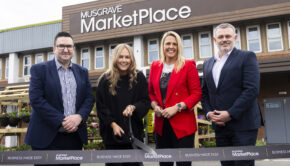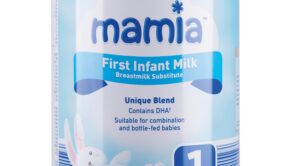Export expectations

Amongst a sea of economic doom and gloom, Irish food and drink exports have shone bright in recent years. Capitalising on the sector's potential, Access 6 is a multi-million EU-funded programme which aims to drive exports from companies in the border regions of the Republic of Ireland, Western Scotland and Northern Ireland. Gillian Hamill caught up with project manager Jane Duncan to learn more about what the initiative involves
21 May 2014
Irish food and drink exports have delivered a recession-defying success story in recent years; playing a key role in bolstering our country’s debt-ridden economy. In fact, according to the latest export figures released by Bord Bia at the start of this year, the value of Irish food and drink exports approached €10 billion for the first time in 2013. This represented an increase of 9% on the previous year and 40% in the last four years with revenues almost €3 billion higher than in 2009.
Expert advice
What these impressive headline figures don’t reveal however, is the level of research required for an indigenous SME to develop a product that appeals to a foreign market. Jane Duncan, project manager for Food and Drink, Channel Partner Development in the Irish Exporters Association (IEA) is someone who knows only too well the level of background work required. She is currently working on Access 6, an EU-funded export programme which aims to help 90 companies across the border regions of the Republic of Ireland, Western Scotland, and Northern Ireland, tackle the challenges involved.
The EU INTERREG IVA-funded initiative is delivered by the IEA in conjunction with Northern Ireland Food & Drink (NIFDA) and Scotland Food & Drink (SFD). Its goal is to provide the 90 participating SMEs with training and mentorship to successfully supply and trade in a number of foreign markets, including the UK, France, Germany, Scandinavia, North America and Benelux. The companies have since been separated into market clusters of 15 businesses, with each cluster targeting a different foreign region.
First-hand research
Alongside establishing an e-learning centre, study tours to each geographic market are a key part of the initiative, which Duncan believes distinguishes it from other resources available to SMEs. The tours involve two days of meeting food marketing specialists in each region and conducting detailed store visits. As Duncan explains: "You’re looking at the shelves, seeing what’s there, seeing how you think your product could fit, looking at price, packaging and pack sizes; all of those factors, and coming back with very comprehensive research. Ok, you could go to one of the research houses and buy information, but it’s not the same as actually going out and being on the ground and seeing the market yourself first-hand." Another benefit of the tours is the opportunity they create for networking between "fellow-like-minded people", who can share the challenges they’ve encountered and motivate each other. In fact, the project manager has even seen cases where companies searching for a particular product, were able to buy it from someone else in their cluster.
Another important function of the study tours is that they offer SMEs the chance to step back from the day-to-day realities of the factory floor and engage in some blue ocean thinking. "I think it’s important to step back from it," says Duncan. "The biggest problem for a lot of these companies is time; getting out of the office or the factory for two days enables them to focus on something else and properly think about it."
Examining the market trends
While each of the six markets covered in the study tours naturally have their own peculiarities in terms of consumer trends, Duncan has noticed many similarities across the board. "One of the big trends is obviously good nutrition, health and exercise and people just generally being a lot more careful about what they’re eating. There’s also the whole free-from culture right across those countries as well; the gluten-free, the dairy-free and so on… those markets are growing the whole time." She observes however that while organic sales in the UK and Ireland have declined somewhat in recent years, in countries like Germany and Scandinavia, there appears to be more importance attached to organic and sales continue to grow.
"The second big trend that we’re seeing everywhere is a focus on value, private-label and the growth and proliferation of discounters in those retail markets," says Duncan. "Here, Aldi and Lidl are [continually] gaining market share. In places like Germany and Sweden and in France to a degree as well…their retail offering is tiered. For example, in Sweden, there’s a large company called Axfood and its premium end is Hemkop which would be similar to a mix between Sainsbury’s and Waitrose. Then it’s got a discount [offering] as well, for the people who want value yet are very conscious of the quality of food that they’re buying."
Buying less but better
As part of the Access 6 programme, participants recently met with the director of private-label in Axfood in Stockholm, which Duncan says provided a "very interesting insight" for the companies in attendance. "In Sweden, even though they haven’t had as severe a recession as we’ve had here, people are prepared to follow ‘a less but better’ trend," she says. "They will buy a nice bottle of craft beer instead of buying a six-pack of a mass brand…People are prepared to treat themselves by buying better cheese; they’re prepared to spend money on better food."
In this respect, Duncan feels there is a good market for luxury Irish goods in both Scandinavia and Germany. "For a lot of Irish artisan producers; they’re small, they’re producing premium products and their price point is going to be a bit higher as well so that is the market that they need to be targeting." Irish producers also have a head-start when it comes to reputation, she adds. "I think Irish food is highly regarded abroad. It’s definitely not a mass-market product, and secondly we have established ourselves as producing very good meat. If you look in France and so on, we definitely have that reputation on the beef and lamb side and I think that that has benefitted other areas as well. Our seafood is very highly regarded as well. A lot of our seafood is actually exported to France where it enjoys a very good reputation."
Greater emphasis on traceability
What’s more, our good reputation is continually being cemented, according to Duncan. "I think a lot of Irish small companies have worked very hard to get into export markets and offer quality products, so that reputation is being built on all the time," she says. The horsemeat scandal likewise failed to leave any lasting scars, in her opinion. "I think that what the horsemeat scandal has done, is that it has really, really focused people on looking at what they’re eating and where they’re sourcing their food from. The whole question of traceability has arisen across every single country; it’s not unique to Ireland. We’ve got good traceability systems in place so I think actually, ok it might have been a temporary glitch for a while but overall it hasn’t harmed the industry because people are saying, we know that Irish produce is good and we know that we can trace it."
Selecting markets carefully
With our reputation and export levels currently booming, it comes as no surprise to hear that competition for available spaces on the Access 6 programme involved a "tough selection process". Criteria for participating SMEs included that that they were expected to have an average sales turnover of £1million per annum and have circa 10 employees, as well as being in business for at least two years. They must also have been able to demonstrate stable finances through their profit and cash flow and that they have resources available for expansion in terms of capacity, people and capital. Subsequently Duncan notes that most participating companies did not have problems scaling up in order to meet demand. In saying that however, she adds that it is still vital to carefully consider where to place producers in the new markets. "For some companies, you can’t go in and say we want you to supply the whole of Auchan in France; it’s a case of picking those markets very carefully. Some of them will go into the main retailers [but] a lot of them will go into more specialist shops in those markets."
While Access 6 can give participating companies valuable access to buyers and channel partners, such as Sodexo in the UK’s foodservice sector, Duncan stresses that for the businesses to succeed, they have to put the work in themselves. "It’s not just about walking in the door, the companies have to be prepared to put the work into it themselves and modify their products if necessary and that’s where the experts can advise them." Providing a company is willing to learn about a foreign market, and knows their product’s USP and why it deserves to be on foreign shelves, the potential rewards are huge.



 Print
Print






Fans 0
Followers